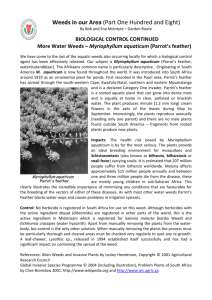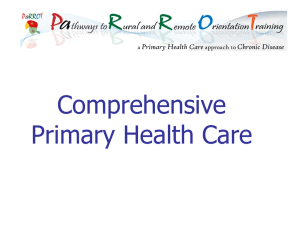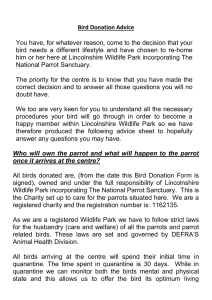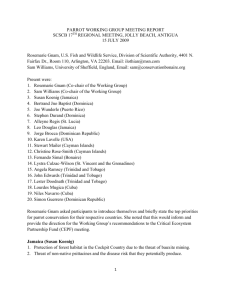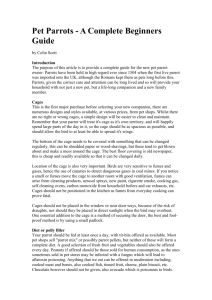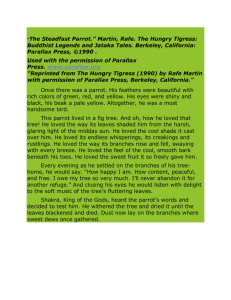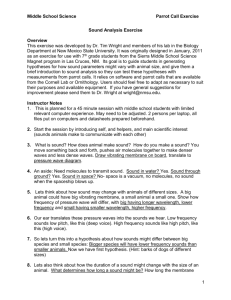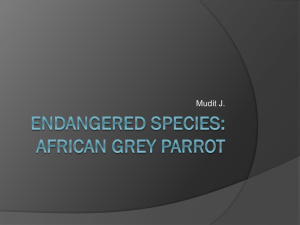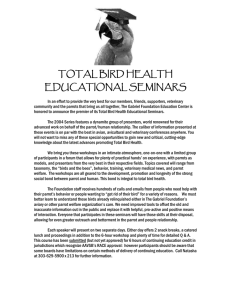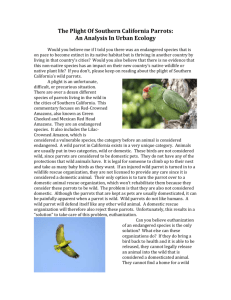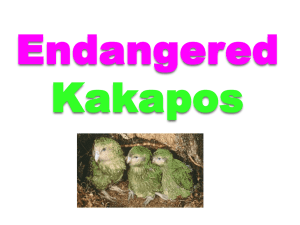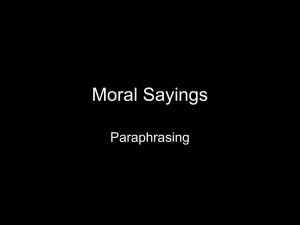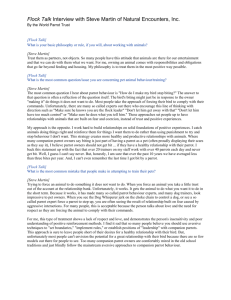File - Taylor & Marshall Veterinary Surgeons
advertisement
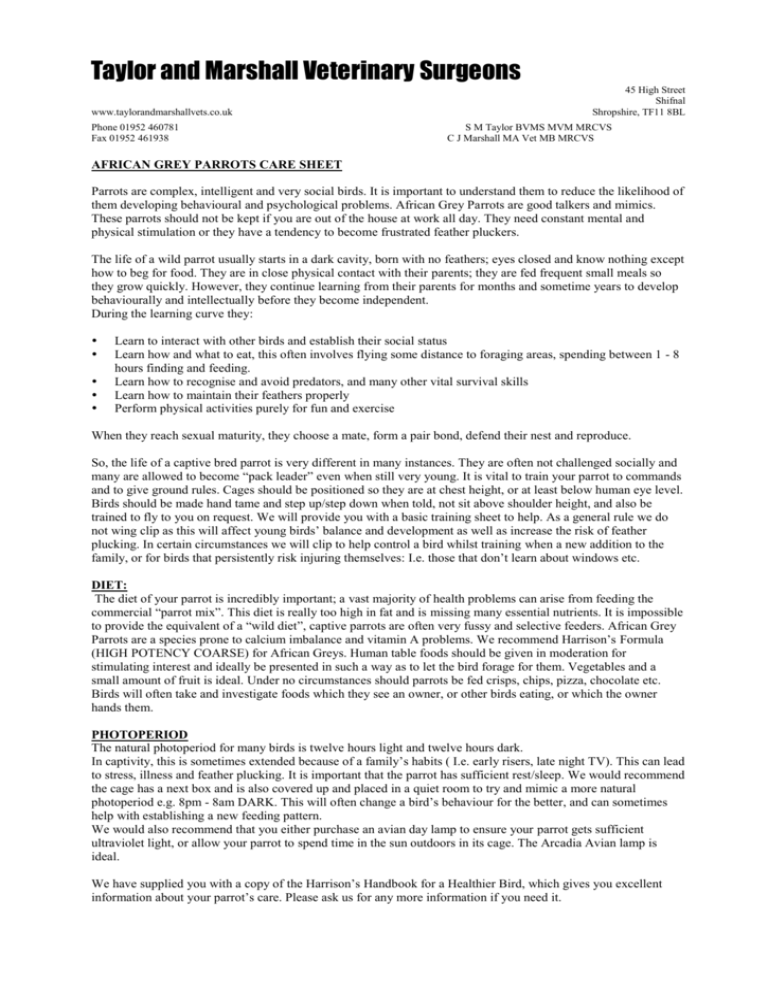
Taylor and Marshall Veterinary Surgeons www.taylorandmarshallvets.co.uk Phone 01952 460781 Fax 01952 461938 45 High Street Shifnal Shropshire, TF11 8BL S M Taylor BVMS MVM MRCVS C J Marshall MA Vet MB MRCVS AFRICAN GREY PARROTS CARE SHEET Parrots are complex, intelligent and very social birds. It is important to understand them to reduce the likelihood of them developing behavioural and psychological problems. African Grey Parrots are good talkers and mimics. These parrots should not be kept if you are out of the house at work all day. They need constant mental and physical stimulation or they have a tendency to become frustrated feather pluckers. The life of a wild parrot usually starts in a dark cavity, born with no feathers; eyes closed and know nothing except how to beg for food. They are in close physical contact with their parents; they are fed frequent small meals so they grow quickly. However, they continue learning from their parents for months and sometime years to develop behaviourally and intellectually before they become independent. During the learning curve they: Learn to interact with other birds and establish their social status Learn how and what to eat, this often involves flying some distance to foraging areas, spending between 1 - 8 hours finding and feeding. Learn how to recognise and avoid predators, and many other vital survival skills Learn how to maintain their feathers properly Perform physical activities purely for fun and exercise When they reach sexual maturity, they choose a mate, form a pair bond, defend their nest and reproduce. So, the life of a captive bred parrot is very different in many instances. They are often not challenged socially and many are allowed to become “pack leader” even when still very young. It is vital to train your parrot to commands and to give ground rules. Cages should be positioned so they are at chest height, or at least below human eye level. Birds should be made hand tame and step up/step down when told, not sit above shoulder height, and also be trained to fly to you on request. We will provide you with a basic training sheet to help. As a general rule we do not wing clip as this will affect young birds’ balance and development as well as increase the risk of feather plucking. In certain circumstances we will clip to help control a bird whilst training when a new addition to the family, or for birds that persistently risk injuring themselves: I.e. those that don’t learn about windows etc. DIET: The diet of your parrot is incredibly important; a vast majority of health problems can arise from feeding the commercial “parrot mix”. This diet is really too high in fat and is missing many essential nutrients. It is impossible to provide the equivalent of a “wild diet”, captive parrots are often very fussy and selective feeders. African Grey Parrots are a species prone to calcium imbalance and vitamin A problems. We recommend Harrison’s Formula (HIGH POTENCY COARSE) for African Greys. Human table foods should be given in moderation for stimulating interest and ideally be presented in such a way as to let the bird forage for them. Vegetables and a small amount of fruit is ideal. Under no circumstances should parrots be fed crisps, chips, pizza, chocolate etc. Birds will often take and investigate foods which they see an owner, or other birds eating, or which the owner hands them. PHOTOPERIOD The natural photoperiod for many birds is twelve hours light and twelve hours dark. In captivity, this is sometimes extended because of a family’s habits ( I.e. early risers, late night TV). This can lead to stress, illness and feather plucking. It is important that the parrot has sufficient rest/sleep. We would recommend the cage has a next box and is also covered up and placed in a quiet room to try and mimic a more natural photoperiod e.g. 8pm - 8am DARK. This will often change a bird’s behaviour for the better, and can sometimes help with establishing a new feeding pattern. We would also recommend that you either purchase an avian day lamp to ensure your parrot gets sufficient ultraviolet light, or allow your parrot to spend time in the sun outdoors in its cage. The Arcadia Avian lamp is ideal. We have supplied you with a copy of the Harrison’s Handbook for a Healthier Bird, which gives you excellent information about your parrot’s care. Please ask us for any more information if you need it.
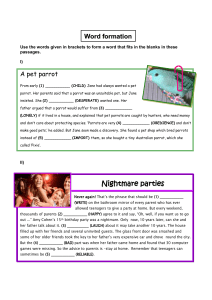
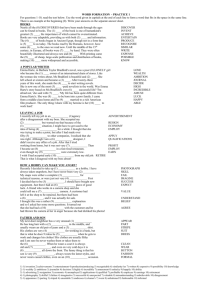
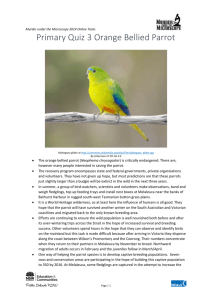
![[DAY 4] HOMEWORK READING SECTION 2](http://s2.studylib.net/store/data/026324175_1-61365bf2372fccc4aee2d71d04f4cf89-300x300.png)
